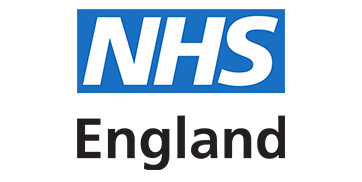Challenge: providing risk-free access to NHS health records
The NHS wants to give patients better digital access to their health records through the NHS App. Until recently, patients could only see new information that the GP added, but not past records.
We were brought in to look at how to improve patient access to this information whilst at the same time reducing any risks. The project focused on 2 key areas.
1. Reducing risks for vulnerable patients
Our approach: developing designs alongside safeguarding professionals
The NHS wanted us to research and design an NHS App feature that lets patients control what health information they see in the App. To address this, we conducted interviews and workshops with safeguarding professionals both in primary and secondary care. We consulted technical experts about current NHS IT system limitations. We also looked at how smartphone users already protect sensitive information on commonly used apps.
Based on these findings, we suggested a phased approach with 3 key improvements:
- short-term: update the NHS App with guidance on how patients can ask their GP to limit access to their records.
- medium-term: let patients reduce the level of detail they see in the NHS App without needing GP intervention, reducing workload for practices and providing immediate control to patients.
- long-term: develop a ‘redaction’ feature that allows patients to hide specific details without removing them from records.
We shared designs and user flows with stakeholders. The phased approach was well received and the NHS are now considering next steps to implement these features.
Results: giving patients control and easing GP workloads
Our work will result in several key benefits for both patients and the NHS.
Benefits for patients
Benefits for the NHS
2. Access to past health records on the NHS App
The NHS also wanted to make past health records easier to access. Prior to July 2023, access to Historic Detailed Coded Records (HDCR) was limited to only 3.9% of the population. Expanding access to HDCR could provide patients with more comprehensive insights into their health.
More access could help patients manage their health and reduce strain on the NHS, but some worried it would burden GP practices. The Made Tech team evaluated these concerns and explored how a request feature within the NHS App might work.
Our approach: user-research to improve processes
The team:
- conducted user research to establish patient needs and clinician concerns
- analysed the existing process for access requests
- worked with NHS England teams to align with other projects such as Mobile First, GP Connect, and the Data Saves Lives strategy
- interviewed patients and visited GP practices to see how things currently work
Results: giving patients valuable insights into their health
Expanding access to Historic Detailed Coded Records would provide patients with valuable insights into their health, including conditions / diagnoses, medications, allergies, and immunisations.
For the client, we found ways to improve efficiency. By following best practices, GP staff could cut the processing time to approve patient requests to access their historical data by up to 40 minutes per request, resulting in quicker access to vital health data for patients and saving time for healthcare providers.
Our research demonstrated that improved digital access provides benefits to both patients and NHS staff. Off the back of the research we recommended 15 key actions. Here are some of the most important ones:
This project will make it easier for patients to access their NHS records while keeping their information safe. By giving patients more control over what they see, we can reduce risks and streamline processes for GP practices. The NHS is now looking at how to implement these improvements, which will make it easier and safer for people to manage their health information.
For more information on the healthcare services Made Tech offers, take a look at our Health and Life Sciences webpages.





